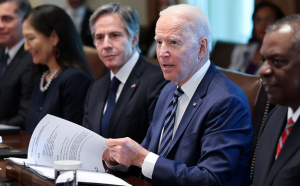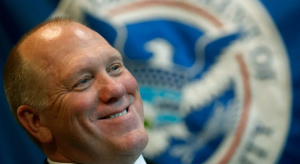In a major development that could reshape the conversation around election integrity in the United States, the U.S. Department of Justice (DOJ) has filed a federal lawsuit against the North Carolina State Board of Elections, alleging widespread violations of voter identification laws. The lawsuit, made public on May 28, 2025, marks one of the most significant legal confrontations over voter registration practices in recent history, with more than 200,000 potentially invalid registrations at stake.
The legal action follows a sharp shift in federal election enforcement priorities under President Donald Trump’s second term, and it directly ties into Executive Order 14248, signed in March 2025. That order instructed federal agencies to intensify scrutiny on illegal voting practices, voter fraud, and breakdowns in the electoral system’s administrative functions.
The DOJ’s Complaint: Alleged Violations and Named Officials
The DOJ’s 19-page complaint accuses the North Carolina State Board of Elections (NCSBE) of violating the Help America Vote Act (HAVA)—a federal statute enacted in 2002 to ensure accurate, secure, and accessible voter registration rolls across all states. The suit contends that the state knowingly used a registration form that allowed applicants to skip essential identification fields such as:
-
A valid driver’s license number
-
The last four digits of their Social Security number
-
Any other unique identifier required under federal law
According to the DOJ, this omission constitutes a blatant violation of HAVA’s voter verification standards. Alarmingly, internal communications and sworn testimony from a November 2023 hearing reportedly reveal that NCSBE officials were aware of the form’s legal deficiencies but chose not to amend it in time for the 2024 elections. Instead, the board postponed revisions, effectively leaving the door open for potentially ineligible voters to be added to the rolls.
The lawsuit names all five sitting board members—Francis X. De Luca, Jeff Carmon, Stacy Eggers IV, Siobhan O’Duffy Millen, and Robert Rucho—as well as Executive Director Sam Hayes as defendants. Each is accused of willfully failing to enforce voter ID requirements and neglecting to correct known violations of federal law.
DOJ’s Statement: Upholding Integrity in the Electoral Process
Assistant Attorney General Harmeet K. Dhillon, who now leads the DOJ’s Civil Rights Division, emphasized the seriousness of the matter in a public statement:
“Accurate voter registration rolls are critical to ensure that elections in North Carolina are conducted fairly, accurately, and without fraud. The Department of Justice will not hesitate to file suit against jurisdictions that maintain inaccurate voter registration rolls in violation of federal voting laws.”
The DOJ’s stance aligns with the Trump administration’s broader strategy to crack down on voter fraud and administrative negligence. The administration has been vocal about restoring public trust in election outcomes by ensuring that only eligible citizens are registered to vote and that they cast ballots under legally prescribed rules.
The Legal Background: What Is HAVA?
The Help America Vote Act was signed into law in 2002 in the wake of the 2000 presidential election controversy. It introduced sweeping reforms to improve the accuracy and accessibility of voting systems. Among its many provisions, HAVA mandates that states:
-
Implement centralized and regularly updated voter registration databases
-
Require voters to present identifying information at the time of registration
-
Maintain accurate and current rolls by removing deceased or ineligible voters
The DOJ alleges that North Carolina’s failure to enforce the ID verification component directly violates HAVA and undermines the integrity of its voter registration system.
North Carolina’s Response and Political Reactions
While state officials have not issued a formal response to the lawsuit, sources familiar with the matter say the North Carolina Board of Elections is preparing to challenge the DOJ’s claims in court. Defenders of the board argue that the registration form’s flaws were unintentional and that the board was in the process of correcting them before the lawsuit was filed.
The lawsuit has ignited fierce debate among lawmakers and political commentators. Supporters of the DOJ’s action say it’s long overdue and necessary to safeguard democratic processes.
Republican Congressman Dan Bishop (NC-9) said in a statement:
“This is what election integrity looks like. North Carolina voters deserve to know that their ballots aren’t being canceled out by fraudulent registrations. The DOJ is doing its job, and I support this effort wholeheartedly.”
Democrats, on the other hand, have condemned the lawsuit as politically motivated and part of a broader strategy to suppress voter turnout.
State Senator Natalie Murdock (D-Durham) called the move “a dangerous overreach by the federal government designed to intimidate election officials and discourage civic participation.”
National Implications and Potential Fallout
The implications of this lawsuit stretch far beyond North Carolina. If the DOJ prevails, it could set a legal precedent for more aggressive federal enforcement of voter ID and registration laws in other states. This would likely intensify scrutiny of state-level election boards and may trigger audits or lawsuits in jurisdictions with similarly outdated or non-compliant practices.
Moreover, the case could influence the ongoing debate over federal vs. state control of election administration—a topic that has gained traction following the chaotic 2020 and contentious 2024 elections.
Conclusion & Fact Check
The lawsuit against the North Carolina State Board of Elections underscores the increasing federal commitment to enforcing voter integrity laws under the Trump administration. The DOJ’s case alleges serious breaches of federal law, pointing to deliberate inaction by state officials that could have affected hundreds of thousands of voter registrations.
If proven in court, these violations could not only lead to administrative overhaul in North Carolina but also catalyze a national push for stricter enforcement of HAVA compliance across the United States.
✅ Fact Check:
-
Claim: The North Carolina State Board of Elections allowed more than 200,000 voters to register without proper identification, violating federal law.
-
Status: Supported by DOJ Complaint. The Department of Justice’s formal complaint outlines this allegation and cites internal testimony acknowledging the issue.
-
-
Claim: The DOJ lawsuit is politically motivated.
-
Status: Opinion. While critics argue that the lawsuit aligns with partisan goals, the DOJ asserts it is enforcing federal law, specifically the Help America Vote Act.
-
-
Claim: Federal law requires states to collect ID information at voter registration.
-
Status: True. Under HAVA, applicants must provide a driver’s license number or the last four digits of their Social Security number.
-
Sources:
-
U.S. Department of Justice Press Release
-
Help America Vote Act of 2002
-
Executive Order 14248 (2025)
-
Public Court Filings, DOJ v. North Carolina State Board of Elections
-
Statements from Assistant Attorney General Harmeet Dhillon
-
Congressional statements from Rep. Dan Bishop and Sen. Natalie Murdock









